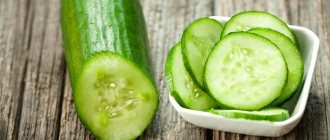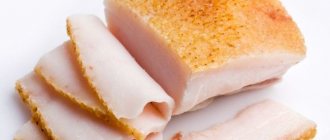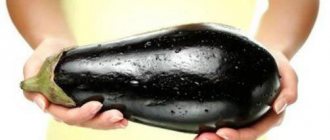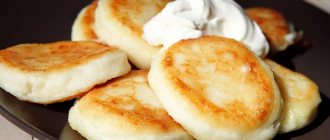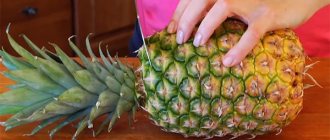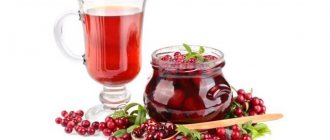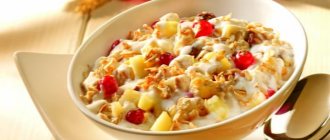Cucumber is everyone's favorite vegetable. Doctors often prohibit nursing mothers from eating it, citing the fact that the components of this product pass into breast milk and cause increased gas formation and intestinal upset in the baby.
But, as many doctors as there are, so many opinions. Therefore, you should understand this question: when can you eat cucumbers while breastfeeding and in what cases should you give them up?
The benefits of breast milk for a baby
Breast milk contains useful micro- and macroelements that are transferred to the baby for the normal functioning of the body and its protection from negative external influences. Doctors recommend breastfeeding a child for at least the first two months to strengthen his immune system and help the body adapt to a new environment.
As for the diet of a nursing mother, it should contain vitamin products. If you want to eat pickled cucumbers or tomatoes, which are not recommended due to impaired lactation, it is important to initially consult with a pediatrician to find out exactly how the product affects the newborn’s body.
The lactation period is very important for a woman and for a child, therefore the foods that a mother prefers shape the gastronomic preferences of her child. If any new products are introduced into the diet, then you need to monitor the baby’s condition so that in case of a negative reaction, take the necessary measures. If the child reacts normally to new dishes, then you can gradually increase their quantity in the mother’s diet. Thus, the girl enjoys a balanced diet with new opportunities, and the baby receives tasty and nutritious breast milk.
Can you eat cucumbers while breastfeeding?
In the first weeks after birth, a fragile baby reacts very sensitively to any innovations in his daily routine. The baby’s body experienced unimaginable stress, replacing its usual microclimate with an alarming world around it. Any phenomena that he has to deal with can cause negative reactions in the baby’s behavior and attitude.
Therefore, the diet of a nursing mother in the first weeks after childbirth should be as gentle as possible for the body of her newborn baby.
You should not experiment with new products that can alarm your baby, at least in the first month after giving birth.
Useful properties of cucumbers
Fresh and pickled cucumbers bring great benefits to the body due to the concentration of the following substances:
- A large amount of potassium has a positive effect on the functioning of the cardiovascular system.
- Vitamins B and E - accelerate metabolism and ensure normal functioning of the gastrointestinal tract.
- Iron, magnesium, zinc and iodine are important beneficial substances that take part in hematopoiesis, the functioning of the heart muscle and internal organs. Rapid absorption by the organ eliminates the accumulation of toxins in the gastrointestinal tract.
- The plant fiber found in cucumbers improves the functioning of the digestive system, which normalizes stool and prevents constipation. It is also important that cucumbers are considered a light diuretic product, so toxins are removed and the kidneys are cleansed of sand accumulations.
The richness of cucumbers allows you to avoid overeating, which, combined with the low calorie content of the product, guarantees rapid weight loss without harm to health.
Is it possible to have spinach while breastfeeding?
Fresh cucumbers
Fresh cucumbers cannot completely remove toxins from the body due to the liquid contained in the composition, but regular use can improve the condition, which is considered an important advantage in terms of improving the functioning of the gastrointestinal tract.
Swelling of the arms and legs is a frequent companion of pregnancy and the postpartum period, as the body adapts, which negatively affects the state of health. The potassium found in cucumbers allows moisture to be removed, therefore providing a slight lymphatic drainage effect, which eliminates swelling and prevents its reappearance.
Problems with the thyroid gland after pregnancy are caused by hormonal changes in the body, so the diet should contain iodized foods to replenish the lack of substance in the blood. Due to the iodine in their composition, cucumbers are considered a useful product for preventing or eliminating such problems.
About the benefits of fresh cucumbers
Many people underestimate cucumbers, believing that they contain nothing but water and fiber. Here is a list of the main components that make up the vegetable:
- water;
- cellulose;
- pectin;
- potassium;
- iodine;
- magnesium;
- phosphorus;
- iron;
- chlorine;
- silicon;
- water-soluble vitamins B and C, PP
- zinc;
- bromine;
- cobalt:
- tartronic acid.
The water contained in cucumbers cleanses the kidneys and urinary tract, removes toxins from the body's cells, and increases lactation. Dietary fiber maintains intestinal microflora and peristalsis at an optimal level, helps reduce excess weight, and removes cholesterol and toxins.
Tartronic acid is involved in carbohydrate metabolism, slowing down the conversion of polysaccharides into fats. This will help the nursing mother maintain her figure.
Potassium strengthens the heart muscle, removes excess fluid from the body and eliminates swelling, and normalizes blood pressure. When breastfeeding, the need for minerals and microelements increases, so you need to eat fresh cucumbers. The trace elements zinc and silicon are responsible for the beauty of the skin and are strong antioxidants.
Iodine is necessary for the proper functioning of the thyroid gland and the physical development of the infant.
Cucumber pulp is saturated with B vitamins, which are indispensable in the processes of cellular metabolism of the nervous system, improve the transmission of nerve impulses to cells, and even out the emotional background. A good, even mood is the key to successful lactation.
Young cucumbers contain vitamin C, but it gradually disappears as the fruit ripens (overgrown cucumbers do not have it at all). Ascorbic acid strengthens the immune system, has antioxidant properties, and is involved in the synthesis of connective tissue fibers, which helps tighten the skin. It is important for a nursing mother to eat young cucumbers to improve the condition of the skin of the abdomen if it has become stretched during pregnancy.
Young fresh cucumbers, eaten together with meat, increase the absorption of protein and iron and reduce the load on the pancreas.
Salted cucumbers
During the salting process, the product loses most of its nutrients. Interchangeable processes occur, for example, potassium is replaced by sodium salts, which retain water in the body, which provokes the appearance of edema and high blood pressure. Therefore, for a nursing mother, such a product will provide harm rather than benefit, so it is important to evaluate the pros and cons before including it in the diet.
Don’t forget that pickled cucumbers have a strong spicy taste, which causes the milk to taste bitter, which negatively affects the baby’s health.
Salt is the main cause of thirst, so a child may constantly want to drink, which will lead to disruption of the gastrointestinal tract. A large amount of liquid puts a strain on the kidneys, which is considered another disadvantage of pickles.
But each organism is individual, therefore, if a girl eats 1 pickled cucumber, nothing bad will happen, since when combining the vegetable with other products that do not contain salt, a salt balance is created. As a result, the milk will not be enriched with sodium salt, which eliminates an adverse reaction in the child.
Important!
It is necessary to monitor the child’s well-being even after consuming a small amount of the product.
Pickles, the enzymes of which have entered the child’s body, can cause the development of the following symptoms:
- Feeling very thirsty.
- Flatulence.
- Poor stool consistency.
- The appearance of an allergic reaction.
- A state of anxiety.
If the child’s condition worsens, you should consult a doctor who will advise what to do in the current situation.
Is it possible to pumpkin while breastfeeding?
Can a nursing mother eat fresh cucumbers?
» Nursing mother » Can a nursing mother eat fresh cucumbers?
Often, young and inexperienced mothers after childbirth go on strict diets, significantly limiting their diet, and all in order not to accidentally harm their baby.
Of course, in the maternity hospital they warn you which foods are healthy and which you should avoid. But after childbirth, the body is maximally depleted, it is extremely lacking in vitamins and microelements, and hands are increasingly drawn to forbidden foods.
In such cases, women are puzzled by the question of whether a nursing mother can have cucumbers and fresh fruits.
Watch the reaction
The body of newborn children is designed in such a way that there are no vegetables and fruits for them, which could be especially dangerous. But each person is individual, and what benefits some people may cause rashes, redness and itching in others, in a word, allergies.
Also, many mothers tend to believe that some vegetables can cause bloating and excessive gas in children. Such products usually include cabbage, cucumbers, and turnips.
So can a nursing mother have cucumbers, fresh fruits and vegetables? Is it worth staying away from these storehouses of vitamins?
Can a nursing mother eat cucumbers? Answer to the question
It is no secret that during pregnancy, as well as during lactation, a woman gives almost half of all vitamins to her baby, which is why they are now so necessary for a nursing mother.
Fresh cucumbers, like other vegetables, contain a lot of microelements that a new mother and her baby need.
In the modern world, vegetables and fruits are becoming more and more expensive, and buying them is becoming more and more problematic, but cucumbers can be grown independently, so eating them is not only possible, but also necessary.
Keep it in moderation
If your child is prone to allergies or suffers from colic, and you still have doubts about whether a nursing mother can eat cucumbers and fresh fruits, then try the products gradually.
Some vegetables have a high fiber content, which can cause increased gas formation in mother and her baby, and these include cucumbers.
To avoid colic, which is usually accompanied by pain, sleepless nights and intense prolonged crying in young children, simply eat cucumbers and other vegetables little by little and slowly. So can a nursing mother have cucumbers, fresh fruits and vegetables? Each woman answers this question herself, based on the characteristics of her baby.
If he often suffers from colic, then in the first months it is better to hold off on this vegetable. And if both mother and child feel great, then under no circumstances should you give up cucumbers. All troubles can be avoided if you eat all foods in moderation, and you don’t have to follow strict diets, you just need to know when to stop.
Fresh or salted
Cucumber lovers are divided into two categories. Some prefer salty, others prefer fresh.
Which ones are best to eat during lactation? Fresh cucumbers, like salted ones, tend to create increased gas formation in the intestines, but canned vegetables contain a considerable amount of salt.
And doctors strongly recommend refraining from highly salted, fried and spicy foods during lactation. Therefore, pickled cucumbers lose in this battle.
.ru
Can a nursing mother eat cucumbers?
You are here: > Articles > Parents > Breastfeeding > Can a nursing mother eat cucumbers?
Cucumbers are a healthy and nutritious product containing fiber and vitamins B and C. The vegetable is an excellent snack and addition to various salads, it quenches thirst (95% consists of water) and is suitable for creating a diet menu. But is it possible for a nursing mother to eat cucumbers, whose diet should consist of foods that are not contraindicated during lactation?
articles:
- Cucumbers and lactation
- Vegetable consumption rate
- Pickled cucumbers during lactation
Cucumbers and lactation
Cucumbers do not contain substances that are contraindicated for a nursing mother. On the contrary, fresh vegetables improve intestinal motility, normalize digestion and saturate the body with important vitamins.
The baby receives beneficial substances through mother's milk, so cucumbers cannot cause harm during breastfeeding.
On the contrary, the child receives the B vitamins necessary for development and full growth, and vitamins C and A to strengthen bones and form the immune system.
But it’s not in vain that young mothers are wondering whether cucumbers are ok while breastfeeding. Often fresh vegetables cause flatulence and bloating. If a woman has a so-called allergy to cucumbers, which manifests itself as indigestion, then the child almost certainly has it too. That is, eating this vegetable will lead to colic in the baby.
When asking whether a nursing mother can eat cucumbers, you should look at your body’s reaction. If digestion is not disturbed after consuming the product, then you should not give up such a healthy vegetable. But even in this case, it is better to wait until the child is four months old. Until this time, the mother's diet is limited to non-allergenic foods only.
Vegetable consumption rate
Considering the above, we can draw conclusions about whether it is possible to eat cucumbers while breastfeeding - it is possible, but only in the absence of unpleasant consequences of eating the vegetable and in moderation.
You should not completely switch to eating salads and vegetable snacks. The mother requires a complete diet consisting of meat, fish, dairy and fruit dishes.
But you can eat cucumbers 2-3 times a week, 2-4 small pieces.
A woman should remember that cucumbers can be consumed without adding mayonnaise and seasonings. The best option would be to prepare a light salad of cucumbers and broccoli, seasoned with vegetable or olive oil.
It’s better to buy vegetables in the summer; ideally, grow them yourself in your dacha or garden. If this is not possible, you should purchase from neighbors, family or friends.
This will give confidence that the cucumbers were grown without the addition of chemicals, which cannot be said about store-bought products.
Pickled cucumbers during lactation
Is it possible for a nursing mother to have pickles? When breastfeeding, it is recommended to avoid all highly salted and spicy foods. They can lead to colic and constipation in the baby. When choosing between fresh and salted vegetables, the choice should be made in favor of the former. But in this case there is an exception.
You can prepare lightly salted cucumbers yourself by keeping them in the prepared solution (water and salt) for no more than a day. In this case, it is better to take large fruits so that the solution does not completely saturate the cucumbers. But a young mother needs to give up store-bought gherkins.
And there are several reasons for this:
- Preservatives are added to the brine to increase the service life of the product;
- Long-term storage of cucumbers in brine makes the fruit very salty;
- Various seasonings that are contraindicated during lactation are added to the brine;
- Buyers know nothing about the origin and growth of cucumbers; most vegetables are grown in greenhouse conditions using additives for rapid growth;
- An open jar can be stored for no more than two days, and during this time the mother can eat only 2-3 cucumbers.
Pediatricians often recommend replacing fresh cucumbers with pickled ones, since they do not cause increased gas formation. It’s impossible to say for sure whether this is right or wrong; a lot depends on the characteristics of the woman’s body.
Some people calmly eat salads made from fresh vegetables, while others suffer from digestion after eating just one cucumber. Therefore, every mother must decide on her own whether it is possible to eat cucumbers while breastfeeding.
And if you experience digestion difficulties when eating a fresh vegetable, you should try eating one lightly salted or pickled cucumber.
Is it possible for a nursing mother to eat cucumbers? Many women who have recently given birth to babies wonder. This tasty and healthy vegetable, which does not contain proteins or fats, is an excellent complement to meat dishes. Therefore, you should not deny yourself the pleasure and enjoy a couple of cucumbers once every few days in the absence of contraindications.
love-mother.ru
Can a nursing mother eat cucumbers?
Fresh vegetables and fruits are rich in vitamins and fiber essential for health. At the same time, lists of foods prohibited for consumption, including many vegetables, are widespread among nursing mothers. Why should you not eat cucumbers while breastfeeding and is this true? Maybe I should still eat cucumbers during breastfeeding?
General principles of nutrition during breastfeeding
When breastfeeding, no product enters the baby’s stomach in its original form, since breast milk is formed from the components of lymph and blood. This does not mean that you can eat whatever you want. The principles of healthy eating have not been canceled, because the condition and well-being of both the baby and the mother depend on their adherence.
The menu of a nursing woman should contain elements of all food groups: cereals and porridges, meat and fish, dairy and fermented milk products, vegetables and fruits, legumes and seeds, natural sweets. It should be borne in mind that many common foods are potential allergens and should be avoided. First of all, this:
- eggs and chicken;
- peanuts and other nuts;
- chocolate and cocoa products;
- seafood;
- citrus.
This recommendation applies to the mother’s diet until the baby reaches 3 months; after this age, you can carefully try each of the products, introducing one at a time and monitoring the reaction of your baby.
rebenokmama.ru
Is it possible to eat cucumbers during breastfeeding?
Vegetables are an irreplaceable source of vitamins in the human diet. They should be the main product on the table of nursing mothers, but they must be introduced into the diet very carefully and gradually. Everyone knows that milk is the main food product of an infant, and what the mother eats is of no small importance.
Together with mother's milk, the baby receives vitamins and minerals that help strengthen the immune system. Therefore, if the child does not have a tendency to allergic reactions, then it is necessary to consume vegetables during breastfeeding. And, of course, in the summer, I really want to eat cucumber - a very tasty and healthy vegetable.
And very often the question arises: is it possible to eat cucumbers while breastfeeding and how beneficial will it be for mother and baby?
Useful properties of cucumbers
Fresh cucumbers are very healthy, they contain a huge amount of vitamins and minerals that ensure the normal functioning of the whole body, a large amount of tartronic acid, with which carbohydrates are not converted into fats.
Useful properties of cucumbers:
- increased potassium content, which has a beneficial effect on the functioning of the heart muscle and kidneys;
- low calorie content;
- the presence of a large amount of dietary fiber, which improves digestion;
- the presence of high levels of iodine;
- the presence of vitamins PP, B, E;
- high content of microelements - sodium, calcium, fluorine, chlorine, iron, magnesium, zinc.
When eating cucumbers:
- digestion and absorption of protein foods improves;
- a laxative effect occurs;
- have a diuretic effect;
- metabolism is normalized.
When can fresh cucumbers be introduced into a nursing mother’s diet?
Of course, all of the above properties of fresh cucumbers are very useful for adults. But how useful will it be for the baby?
Despite the fact that the food eaten does not pass into breast milk, the mother’s body’s reaction to the product is still transmitted to the baby. And introducing fresh cucumbers into mom’s diet too early can cause gas formation, bloating, colic, and even dysbacteriosis.
Unfortunately, most newborn babies suffer from abdominal pain in the first three months caused by milk fermentation in the intestines. And cucumbers will only aggravate the pain, so it will still be better if mom temporarily refuses them.
It is advisable to introduce cucumbers into the diet during breastfeeding in the fourth or fifth month of the baby’s life, when his digestive problems disappear.
It is recommended to consume cucumbers during breastfeeding in the morning and in minimal quantities in order to observe the baby’s reaction throughout the day. If colic or bloating appears, it will go away by night.
If the child feels well, he is not bothered by bloating, colic, or diarrhea, then a nursing mother should not refuse cucumbers, but should not overeat.
You should also pay attention to the quality of cucumbers. In cold weather, they are grown in greenhouses using various chemicals. Therefore, nitrates that accumulate in fruits can cause poisoning, that is, it is better to avoid consuming such vegetables. In the summer, it is better to eat cucumbers fresh and from your own garden.
Eating salted and pickled cucumbers
In terms of the content of nutrients, pickles are not inferior to fresh fruits. They retain all microelements, normalize digestion and increase appetite.
A nursing mother should consume salted and lightly salted cucumbers with great caution. Excessive consumption of them can cause intestinal colic in a child. You need to introduce them into your diet gradually and in small portions, along with your usual foods. If the child does not develop a rash or his tummy bothers him, he can eat another piece.
In the absence of consequences, nursing mothers are not prohibited from eating cucumbers, but in reasonable quantities, because... they retain fluid in the body.
Excessive consumption of pickles can cause a child to:
- bowel dysfunction;
- increased gas formation;
- nervousness;
- increased thirst;
- allergic skin rash.
When preparing dishes, you need to choose vegetables with great care so as not to cause discomfort to the child, because his digestive system is very weak.
Pickles
Pickled cucumbers contain a large amount of salt and vinegar, the use of which is not advisable during breastfeeding.
The question of whether to eat cucumbers or not during breastfeeding is best decided by the mother, based on the condition of the child.
Now let's talk about tomatoes (fresh, salted and stewed) - link to article
Read more on the topic:
razvitie-krohi.ru
Source: //babysu.ru/kormyacshaya-mama/mozhno-li-kushat-kormyacshej-mame-ogurcy-svezhie.html
Rules for eating pickled cucumbers
To avoid problems associated with poor milk quality, it is recommended to take into account the following rules for taking pickles:
- Homemade pickled cucumbers and tomatoes are considered the safest, since they do not contain any unknown products that could cause an adverse reaction in the body. And also the salting recipe can be adjusted to avoid a high concentration of salt or acetic acid.
- You should not eat pickles on an empty stomach to avoid irritation of the mucous membrane and the appearance of inflammatory processes in the kidneys.
- In no case should you drink pickles with water, as this can lead to salt deposits in the kidneys, which in the future leads to the appearance of stones.
- It is recommended to introduce pickles into the diet of a nursing mother only when the baby reaches three months of age.
Taking into account the pediatrician’s recommendations, the correct attitude towards developing a diet and monitoring the child’s reaction is an opportunity to avoid adverse reactions and worsening the condition during breastfeeding.
Is it possible to use lard while breastfeeding?
Tomatoes while breastfeeding
The tomato is a vegetable that rightfully deserves the title of a storehouse of vitamins. Besides, it is also very tasty. However, doctors, especially old-school pediatricians, when determining the diet of a nursing mother, almost always recommend excluding tomatoes and dishes and products derived from them. Why does this happen and is it possible to eat tomatoes while breastfeeding? More about this below.
Vegetables are different: what kind of tomatoes can you have during GW?
Of course, the ideal option is fresh, grown only with organic fertilizers. Fermented, salted, pickled foods may be able to satisfy the mother’s taste preferences, but they will not bring much benefit to either her or the baby.
In addition, canned cucumbers and tomatoes are not recommended for breastfeeding for one more reason: they contain too much salt, which can cause a woman’s water-salt imbalance with subsequent fluid retention, that is, edema.
It is advisable that the vegetable be seasonal: winter and early spring tomatoes contain too many nitrates. Even if their quantity fits into the norm for an adult, a baby does not need such “supplements” in the diet at all.
If the period of breastfeeding falls in the winter or spring season, it is advisable to take care in advance to diversify the menu during breastfeeding. To do this, in the summer you need to select tomatoes with thick skin and dense pulp, wash and dry them thoroughly, and then pack them in sealed bags and put them in the freezer.
After defrosting, such a product is practically no different from one freshly picked from a bush in the garden - neither in taste nor in the amount of nutrients.
Many people are interested in the question of whether it is possible to steam, stew and baked tomatoes under guards. If the baby tolerates fresh vegetables well, their thermally processed modification will not cause problems in his body. In addition, tomatoes are best digested when combined with fats. Therefore, stew or bake them with vegetable oil without fear!
Products such as ketchup, adjika, tomato paste and tomato juice deserve special attention.
They should be approached with caution: packaged juice contains preservatives, ketchup and adjika, in addition to components that increase shelf life, there are also spices.
If we are talking about home-made products, they can be consumed, but in the same way as in the case of canned food, taking into account the amount of salt.
When should you not eat fresh tomatoes while breastfeeding?
In fact, there are only two restrictions. The first is a food allergy in infants to the red pigment that is present in these vegetables. The second is gastrointestinal diseases in the mother, for which her therapeutic diet recommends giving up this type of product.
However, even here it is possible to find a way out: for example, you can avoid an allergic reaction in your baby by simply replacing red vegetables with yellow tomatoes during gw.
And a negative reaction from the mother’s stomach and intestines is almost never caused by vegetables prepared in one way or another - stewed, boiled, baked or steamed, for example, in a double boiler.
However, this product should be introduced into the diet of a nursing mother with caution.
It is advisable to start no earlier than the baby is 1.5-2 months old, with a couple of slices or even a few sips of juice per day. Then the dose can be consistently increased so that one medium tomato becomes the norm at 3 months or a little earlier.
If there is a non-standard reaction to a change in the mother’s diet - skin rash, anxiety, abnormal stool of a breastfed baby, you will have to exclude tomatoes from the menu and try again in a month. If this time the baby’s body reacts negatively to the vegetable, it is better to give up trying and wait until the start of complementary feeding.
The benefits of tomatoes: why you can and should eat them during breastfeeding
In conclusion, a little about the positive contribution this amazing vegetable makes to our body. It contains:
- vitamins of groups A, E, PP, K, C;
- iron, potassium and zinc;
- fiber, which normalizes intestinal function;
- lycopenes, which are an excellent preventative against early osteoporosis;
- antioxidants that help fight inflammatory diseases and prevent the development of tumors;
- serotonin, the lack of which leads to a very common mental disorder among young mothers - postpartum depression.
In addition, tomatoes effectively reduce the level of “bad” cholesterol in the blood, and also reduce the risk of blood clots. Therefore, subject to all the above conditions and precautions, consuming high-quality fresh tomatoes while breastfeeding is an excellent solution that you should not refuse.
Source: https://zen.yandex.ru/media/vseogv/pomidory-pri-grudnom-vskarmlivanii-5b5440a882926400aa8de3a3
